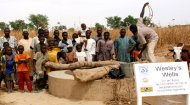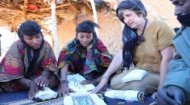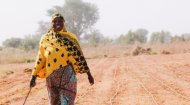|
Volunteer Work Niger |
Volunteer Work Niger |
Volunteer Work Niger | Volunteer Work Niger |
|
 |

Types of Volunteer Work in Niger The needs in Niger are diverse, opening up a wide array of types of work for volunteers with varying skill sets and interests. The most pressing areas often include: Education: This is a cornerstone of development in Niger. Volunteers are critically needed in schools, particularly in rural areas, to assist local teachers, teach subjects like English, French, mathematics, or science, and help with literacy programs. Opportunities also exist in developing educational materials, supporting vocational training, or contributing to school infrastructure projects like building classrooms or establishing libraries. Healthcare and Public Health: Niger faces significant challenges in healthcare, including high rates of maternal and child mortality, malnutrition, and endemic diseases. Volunteers with medical backgrounds (doctors, nurses, public health specialists) can work in clinics, hospitals, or community health centres, assisting with patient care, vaccinations, health education, and disease prevention programs (e.g., malaria, cholera, HIV/AIDS). Those without medical training can still contribute to public health initiatives, such as promoting sanitation, hygiene education, and nutrition awareness. Agriculture and Food Security: As an arid country heavily reliant on subsistence farming, Niger is particularly vulnerable to climate change and food insecurity. Volunteers with expertise in agriculture, environmental science, or community development can work on projects focused on sustainable farming practices, irrigation techniques, reforestation, soil conservation, and developing drought-resistant crops. They can also support community gardens, nutrition programs, and livestock management initiatives. Community Development: This broad category encompasses a range of activities aimed at strengthening local communities. Volunteers might assist with infrastructure projects (e.g., constructing wells, latrines, community centres), support women's empowerment initiatives (e.g., microfinance, vocational training for women), or engage in youth development programs (e.g., sports, arts, leadership training). The goal is often to build local capacity and promote self-sufficiency. Environmental Conservation: With desertification being a major threat, projects related to environmental conservation are vital. This can include tree planting campaigns (reforestation), water resource management, promoting renewable energy, and educating communities on ecological sustainability. If you are considering volunteer work in Niger check out our Niger profile pages to explore the country before you visit and learn how to make the most of your time there. If you do travel, prioritise your health and safety. Drink only bottled or purified water and be cautious about street food. Be aware of your surroundings, especially in urban areas and avoid travelling alone at night. Follow the security advisories issued by your government for travel to Niger, as certain regions have elevated risks. It's advisable to have comprehensive travel insurance that includes medical evacuation. |












